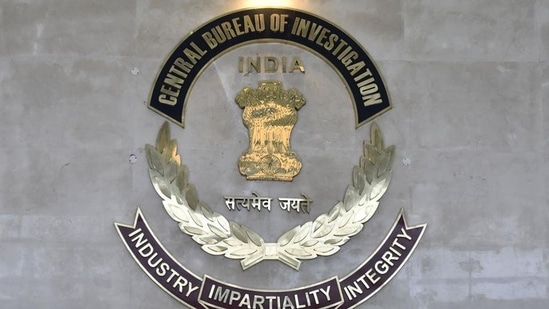CBI investigates NGO-official nexus; Raids over foreign contribution violations in 40 locations
Raids were conducted in Delhi, Mysore, Coimbatore, Chennai, and a few places in Rajasthan among others to nab the representatives of NGOs, middlemen and public servants
The Central Bureau of Investigation (CBI) on Tuesday conducted raids at 40 locations across multiple cities as it started a probe into alleged collusion between government officials and non-governmental organisations (NGOs) for “illegal clearance” of Foreign Contribution Regulation Act (FCRA) licences, people familiar with the development said.

Raids were conducted in Delhi, Mysore, Coimbatore, Chennai, and a few places in Rajasthan among others to nab the representatives of NGOs, middlemen and public servants, including officials from the FCRA division of the Union home ministry, people cited above said, requesting anonymity.
The premier anti-corruption agency was acting on a tip-off from the MHA, which grants licences to the NGOs for foreign funding.
It is alleged that certain public servants in FCRA division, in connivance with NGOs and for a bribe, were facilitating illegal clearances of licences to allow NGOs to receive and use funding from the foreign donors, one of the people said.
About half a dozen government officials and some private persons were apprehended during raids and were being questioned to know more about the conspiracy, a senior CBI officer said, wishing not to be named.
“We have found ₹2 crore cash obtained through hawala by the suspects for FCRA clearances,” the senior officer added.
Explaining the modus operandi used by home ministry officials and NGOs, the officer said: “The representatives of NGOs got in touch with FCRA division’s officers directly, or through certain middlemen. Bribe amounts were fixed for getting a new FCRA licence, getting prior permission, assisting in renewal or revoking cancellation.”
Without naming them, another officer said that at least “15 NGOs could be involved in the racket”.
“Strict disciplinary action will be taken against concerned FCRA officials based on CBI report,” said a home ministry official, who wished not to be named.
Advocate Abishek Jebaraj, a Supreme Court lawyer who has appeared in FCRA matters said, “It would benefit both government and NGOs if the present FCRA is replaced with a more transparent and fair system in the country. A vast majority of NGOs which are doing good work suffer because the laws are too restrictive and at the same time some government officials taking money and granting licences to a few NGOs shows that the present laws are not particularly protecting our national interest.”
Since 2020, the Centre has refused to renew the foreign funding licence of 466 NGOs for not fulfilling the eligibility criteria in accordance with the provisions of the law, according to data tabled by the MHA in Parliament.
There were 100 refusals in 2020, 341 in 2021 and 25 till March this year, the ministry said. A key rejection was that of Oxfam India’s application for renewal of its foreign-funding licence in December 2021, which is yet to be renewed.
Currently, there are 16,890 organisations registered under FCRA in the country.
The home ministry tightened FCRA rules in November 2020, saying organisations that are not directly linked to a political party but engage in political action such as shutdowns, strikes or road blockades will be considered to be of political nature if they participate in active politics or party politics.
This change will bar such groups from receiving foreign funds. Organisations covered under this category include farmers’ organisations, students, workers’ organisations and caste-based organisations.
In the amendments to FCRA — the law was amended in September 2020 — the government barred public servants from receiving foreign funding and made Aadhaar mandatory for every office-bearer of the NGOs. The new provisions also stipulate that organisations receiving foreign funds won’t be able to use more than 20% of such funds for administrative purposes. This limit was 50% earlier. The change impacts the ability of NGOs to use foreign funds they receive for advocacy activities.





